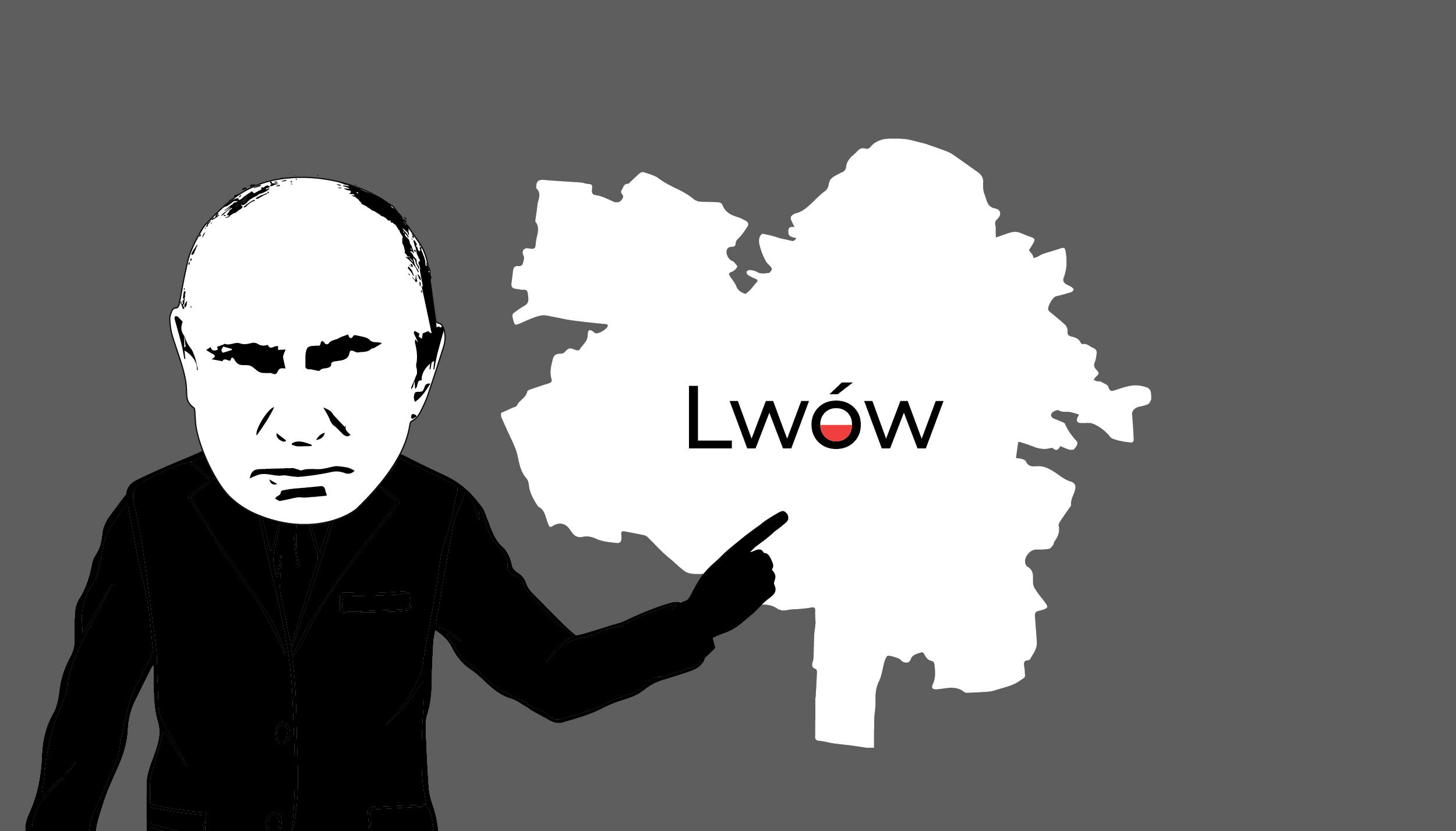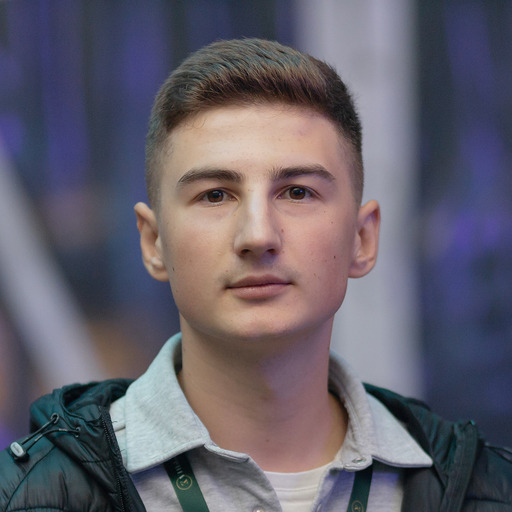Українською читайте тут.
Analyzing how Russia manipulates history when discussing Lviv and the purpose behind contrasting the west and east of Ukraine.
Throughout history, Russia—and before it, the Soviet Union and the Russian Empire—has not only physically seized Ukrainian cities but also captured their symbolic spaces. They did this by declaring certain towns as “inherently Russian” or distorting the image of these cities in propaganda campaigns.
Detector Media has previously reported on how Russian propaganda used the events in Odesa on May 1-2, 2014, to stir pro-Russian sentiments, justifying the shelling of the city by citing the presence of Russian cultural and historical monuments. This was covered in the article “Is Odesa a ‘Russian City’? How Russia Captures the Symbolic Space of Ukrainian Cities.”
Additionally, we have discussed how propaganda tarnishes the image of Mariupol as a city of resistance, using it to justify the deaths of local residents in the piece titled “The Main Showcase of Occupation: How Russia Builds a Potemkin Mariupol on Bones.”
Now, let’s explore the rhetoric of the Russian propaganda machine concerning Lviv.
“Nationalism, Nazism, Fascism, and Bandera”
Kremlin propaganda promotes the narrative that Lviv is a “city of ultra-right nationalists.” For years, propagandists claimed that visiting Lviv could be dangerous for Russian-speaking tourists. In this way, they attempted to distort the image of Lviv, which in reality was the first Ukrainian city to enter the top 100 tourist cities in Europe in 2017—a fact that alone contradicts the image of Lviv that Russia has been “selling” to its population since 2014.
A notable example is a statement by Yevgenia Chirikova, head of the Activatica project, which covers protests in Russia and the activities of Russian volunteers in Ukraine, at the Russian opposition forum held in Lviv in May 2024.
“In Putin’s propaganda narratives, Lviv is a hotbed of ‘Bandera-fascists,’ and should a Russian set foot here, they’ll be devoured alive. We are living proof; we feel very comfortable here,” she said, attempting to convince her compatriots of the obvious.
For decades, the Russian propaganda machine has accused the people of Lviv of both Nazism and fascism—primarily because of the collaboration of the Organization of Ukrainian Nationalists (OUN) with Nazi Germany’s intelligence, without mentioning Stepan Bandera’s arrest and imprisonment in a Nazi concentration camp, the OUN’s fight against the Nazis, or other complex and dramatic historical circumstances.
Russian propaganda used the OUN’s collaboration with Nazi Germany to justify Russia’s full-scale aggression against Ukraine and to demonize Lviv. In April 2022, Russian propagandists spread disinformation that Lviv schoolchildren were arranged in a swastika on Hitler’s birthday, and later people wearing swastika T-shirts were walking through the streets of Lviv. In this way, Russian agitprop sought to convince people that the residents of Lviv “continue to uphold” Nazi ideology. Another virulent fake claimed that a Ukrainian history textbook contained a section on the liberation of the Lviv region by Hitler, suggesting that Ukrainian children were being taught that “the German statesman and politician” was actually good. However, the propagandists failed to name the author or the publication year of the textbook. Moreover, any glorification of Hitler, which is a criminal offense in Ukraine for promoting Nazism, could never be included in the educational program, as was reported by the Center for Strategic Communication and Information Security.
For Russia, Stepan Bandera epitomizes Ukrainian nationalism, while the terms “fascists,” “Nazis,” and “Banderites” have become synonymous in the propaganda narrative. This was also facilitated by Soviet propaganda, which labeled all nationalists as Banderites and portrayed Bandera himself as a Nazi and Hitler’s accomplice. Behind these terms, which are familiar in Russia, especially due to the cult of victory in World War II, lies a certain symbolism: Nazism and fascism are the embodiment of evil. By labeling Ukrainians, particularly the people of Lviv, as Nazis and fascists, the Kremlin exploits this deeply ingrained image of an existential enemy. According to this narrative, if it is not destroyed, it will inevitably destroy you.
“Poland Plans to Reclaim Lviv”
Strangely enough, in the first months of the full-scale war, one of the most widespread Russian disinformation campaigns regarding Lviv was the notion that Poland planned to seize the city. As part of the #DisinfoChronicle project, where analysts from Detector Media document disinformation spread by Russia since February 17, 2022, we recorded at least ten (!) waves of false reports about Poland’s “plans to occupy Lviv” and other cities in western Ukraine, including claims of preparations by local residents for such an event. For example, Russian propagandists alleged that Poland had secretly begun mobilization. The supposed “evidence” for this was the deployment of a “Train with the Armed Forces” program in Poland, which allegedly aimed to prepare Poles for the occupation of Lviv.
Regarding the supposed “awareness” of Lviv residents about the possibility of living under Polish rule, it was claimed that schoolchildren in Lviv were being forced to learn the Polish anthem and that a referendum on the region’s annexation to Poland was being planned in Lviv. The purpose of these fakes was to push the narrative of a “Polish threat,” diverting attention from the violations of international law that Russia committed by attacking Ukraine. Essentially, the Kremlin presents an imaginary threat as worse than the crimes it is committing itself, resorting to mirroring, a tactic typical of Russian propaganda. This approach allows the Russian propaganda machine to use both real and invented pretexts to lay accusations.
When discussing Russian disinformation about Lviv and Poland, the historical context is essential. The city has changed hands with Poland multiple times throughout history. In 1340, Polish King Casimir III the Great seized Lviv but could not hold it due to resistance from the local population. He managed to capture the city again in 1349, and from that year until 1772—with a few interruptions—Lviv was part of Poland, including under the Kingdom of Poland and later the Polish-Lithuanian Commonwealth. The city was also under Polish control from 1918 to 1939. However, during a press conference following the Russia–Africa summit on July 29, 2023, Putin claimed that Lviv was not part of Poland before World War II. Yet historical facts outright disprove such assertions made by the Russian dictator and his propagandists.
In Poland—a Central European state that respects Ukraine’s territorial integrity and is a signatory of the Security Cooperation Agreement between Ukraine and the Republic of Poland—there are no intentions to seize Lviv. The Polish Minister of Foreign Affairs, Radosław Sikorski, reaffirmed this during his speech in the Polish Sejm on April 25, 2024, delivered in Ukrainian:
“Russia lies about Poland’s alleged plans to annex part of Ukraine. Donbas is Ukraine, Crimea is Ukraine. Lviv, Volyn, the former Eastern Galicia are Ukraine too. Therefore, I repeat, so they hear it in the Kremlin: Lviv is Ukraine.”
As Sikorski pointed out, with such claims, Russian leaders and propagandists aim to sow discord between Poles and Ukrainians. The minister also emphasized that Poland would continue to support Ukraine and its European aspirations and that this remains a priority.
The narrative of Poland “occupying Lviv” has several other dimensions. Putin claims that only Russia can be a “guarantor of Ukraine’s territorial integrity.” In other words, the inability to physically seize this western Ukrainian city is accompanied by threats of danger from another neighboring country so as to attract Lviv towards Russia mentally. Meanwhile, the Russian dictator is “100% confident” that many people living in the western regions of Ukraine want to “return to their historical homeland”: Romania, Poland, or Hungary. Furthermore, the states that lost these territories, particularly Poland, were supposedly anxious to take them back.
If the claims that Ukrainians wish to join countries that once ruled parts of Ukraine were true, they would also justify Putin’s assertions that the residents of territories once part of the Russian Empire desire to live again with Russia. This would also further support the propaganda claim that the Ukrainian state is unsustainable and artificial.
“Lviv Suffers Less Than Other Cities”
Russia leverages and exacerbates internal disputes among Ukraine’s residents to serve its interests. Moreover, Moscow fosters animosity between people from different Ukrainian regions, specifically by pitting the east against the west. In 2023, the Russians exploited the relative safety of western Ukraine by launching a disinformation operation called “Fortress Lviv” to exacerbate internal divisions. This was documented by the Center for Countering Disinformation.
The campaign contained several key propagandist messages about Lviv. Russian propagandists used an ironic cover of the “Fortress Bakhmut” song by the band Antytila as a basis. Numerous TikTok videos emerged with the hashtag #FortressLviv, mocking Lviv’s residents by accusing them of supposedly being the only ones suffering from the war and defending Ukraine. In these posts, Lviv was ironically portrayed as being more damaged than Mariupol and Bakhmut. The Center for Countering Disinformation noted that “such manipulations force people in the comments to ‘compete in their suffering.’”
These videos also emphasized the high cost of housing in Lviv. The authors of such posts included screenshots from websites showing available apartments, usually highlighting only the most expensive options. Of course, there was no mention of volunteer organizations, free accommodations, or shelters in Lviv that had hosted many displaced people.
With such posts, Russian intelligence services sought to extract negative experiences from Ukrainians in the comments to create new material for their own propaganda, thereby fomenting hatred among residents of the eastern, northern, and southern regions towards those in the west.
Ultimately, another propaganda message in these videos claimed that “all regions suffer from shelling, but western Ukraine does not.” However, simply visiting the website of the regional publication Zahid.Net and looking through the tag “Explosions in Lviv,” where news about Russian strikes on the city since 2022 is collected, easily disproves the claim that Lviv has not suffered from missile attacks. Although Lviv has suffered less destruction compared to some cities further east, it is nonetheless a target of Russian attacks.
It is also telling how Russians justify their attacks on Lviv, thereby confirming that strikes in western Ukraine do indeed occur. They claim that missile strikes on the city are intended to kill “foreign mercenaries”; or that it is the “Kyiv regime” that is launching strikes against the city and blaming Russia; or that the missile strikes on Lviv are “staged.”
Kremlin propaganda about Lviv often converges with broader rhetoric about western Ukraine, with these terms becoming almost interchangeable—especially when referencing historical events that took place in the modern-day western Ukrainian territories. For the Kremlin, Lviv poses a threat because Soviet ideology had less influence on the city, given that it was under Soviet control for a shorter period (1939–1941, 1944–1991) compared to many other cities in southern, northern, central, and eastern Ukraine. Consequently, the city’s history of being part of different states fostered a distinct cultural environment and pro-European sentiment. For Putin, therefore, Lviv’s residents are seen as incorrigible. And as we know, what dictators cannot subdue, they often seek to destroy.
Main page illustration and infographic by Nataliya Lobach



